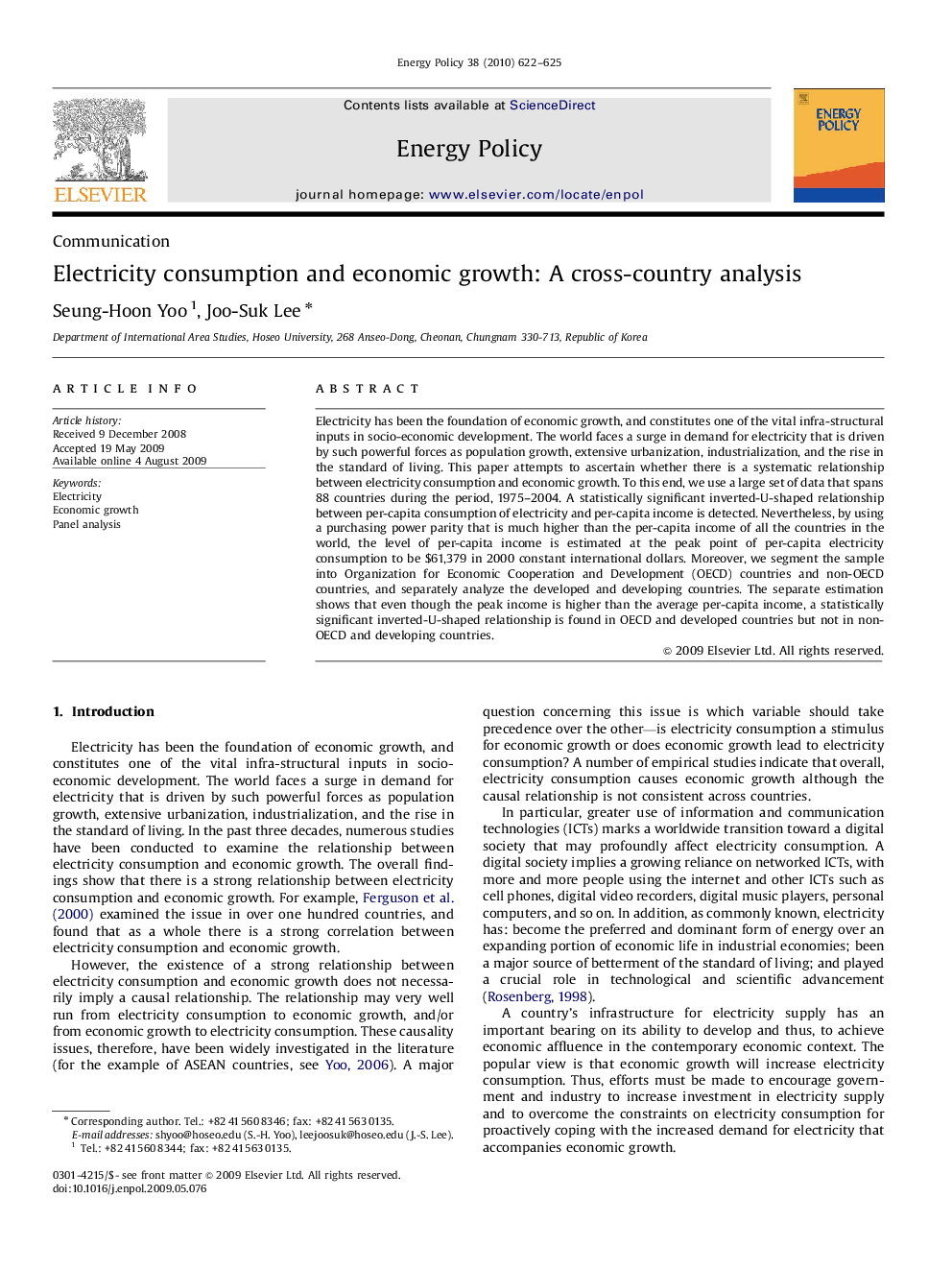| Article ID | Journal | Published Year | Pages | File Type |
|---|---|---|---|---|
| 995136 | Energy Policy | 2010 | 4 Pages |
Electricity has been the foundation of economic growth, and constitutes one of the vital infra-structural inputs in socio-economic development. The world faces a surge in demand for electricity that is driven by such powerful forces as population growth, extensive urbanization, industrialization, and the rise in the standard of living. This paper attempts to ascertain whether there is a systematic relationship between electricity consumption and economic growth. To this end, we use a large set of data that spans 88 countries during the period, 1975–2004. A statistically significant inverted-U-shaped relationship between per-capita consumption of electricity and per-capita income is detected. Nevertheless, by using a purchasing power parity that is much higher than the per-capita income of all the countries in the world, the level of per-capita income is estimated at the peak point of per-capita electricity consumption to be $61,379 in 2000 constant international dollars. Moreover, we segment the sample into Organization for Economic Cooperation and Development (OECD) countries and non-OECD countries, and separately analyze the developed and developing countries. The separate estimation shows that even though the peak income is higher than the average per-capita income, a statistically significant inverted-U-shaped relationship is found in OECD and developed countries but not in non-OECD and developing countries.
